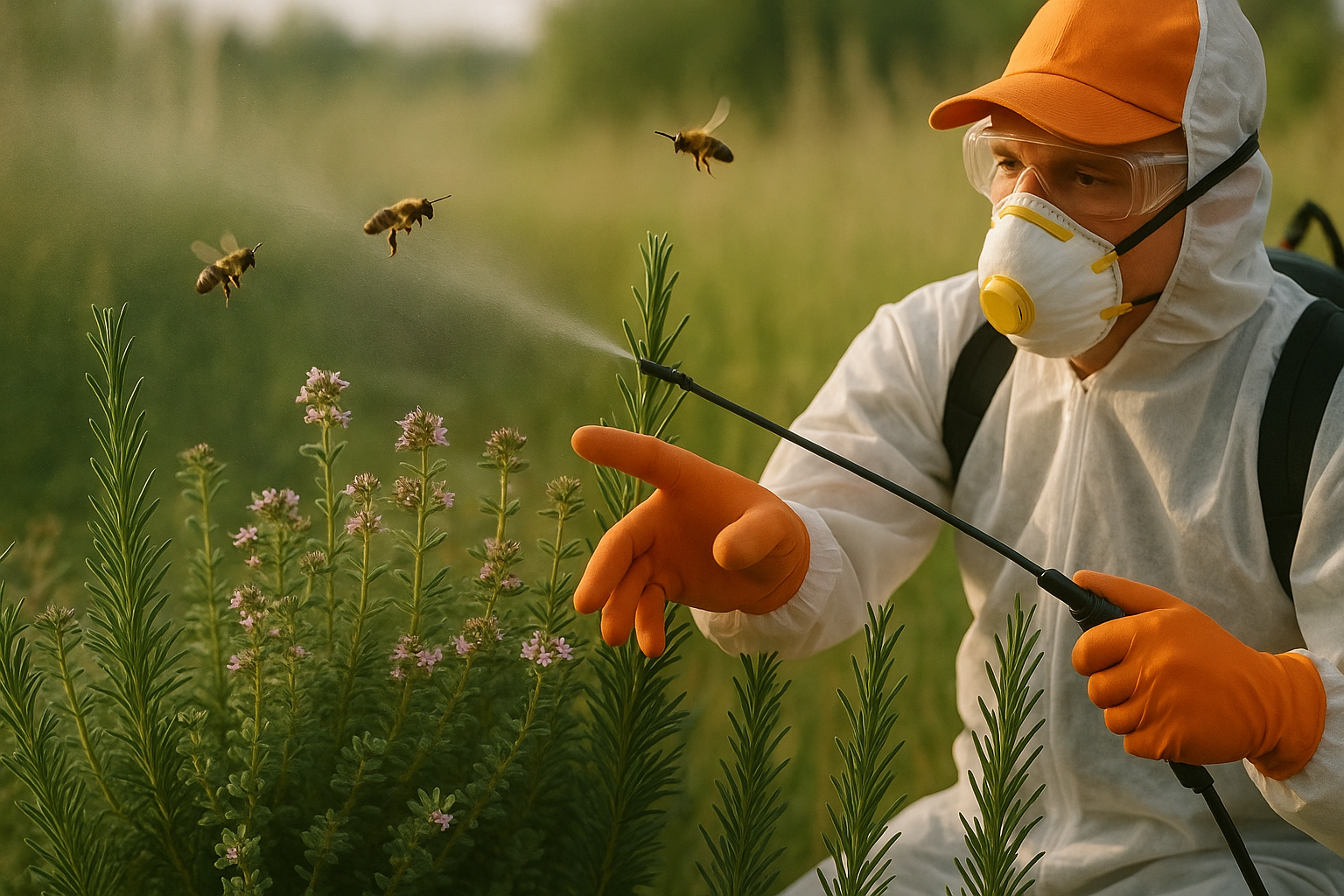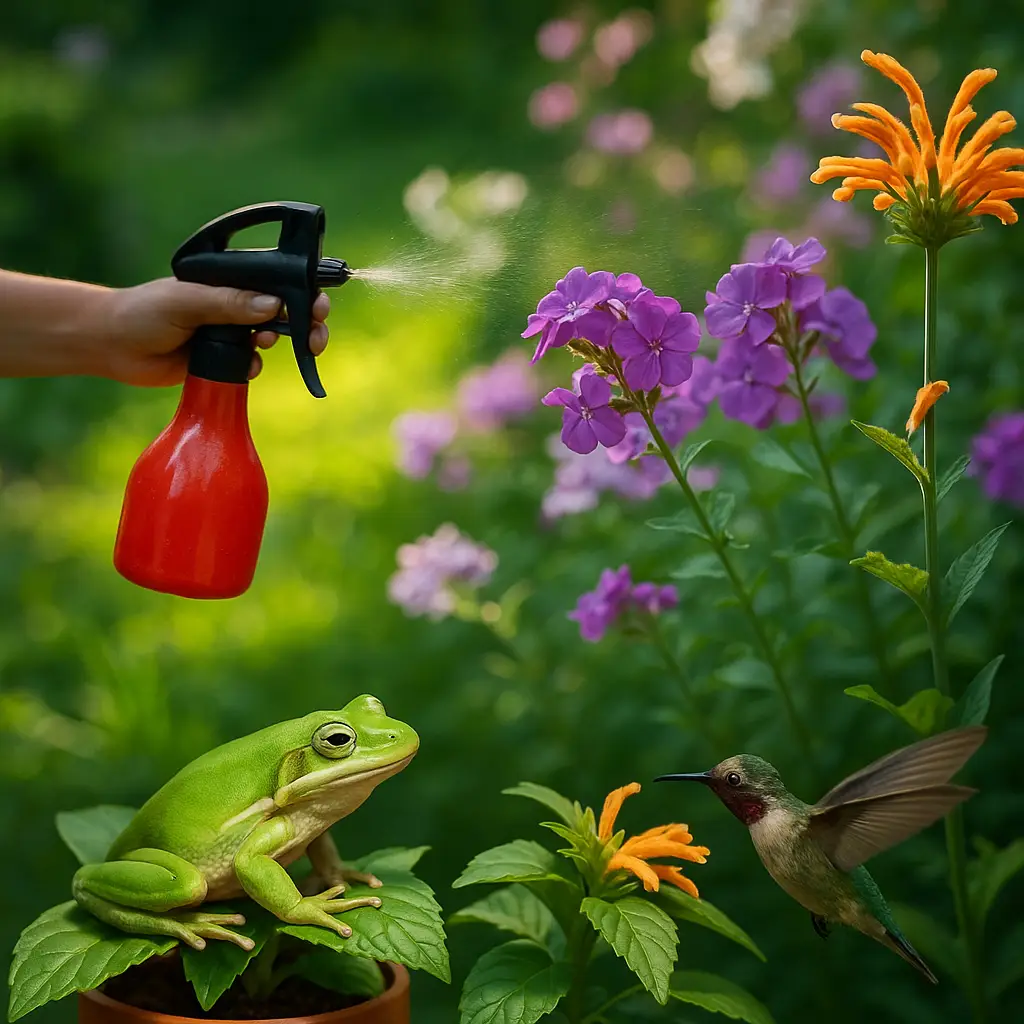Why Choosing Sustainable Insect Control Makes a Big Difference
As garden lovers, we always want to create a beautiful, thriving space that’s safe for our families, pets, and wildlife. Bugs and insects are part of any garden’s ecosystem, but sometimes they can get out of hand. That’s where sustainable insect control comes in.
At Wasps-R-Us, we believe in working with nature. Instead of harsh chemicals that harm more than help, we choose methods that let our gardens flourish naturally. If you’ve been on the lookout for ways to tackle insects while protecting the environment, these ideas are perfect for you.
Start by Attracting Natural Predators
One of the best tricks in the book is to invite Mother Nature’s own pest control squad into your garden. Certain birds, frogs, hedgehogs, and even insects like ladybirds are brilliant at eating pests.
To attract these helpful guests:
- Plant flowers that bloom all season to feed pollinators and attract ladybirds.
- Leave a water dish out for birds and frogs.
- Build a small pond to draw in frogs and toads.
- Install a bug hotel near your veggies or flower beds.
Adding these natural elements won’t just boost your pest control game, but also bring more life to your outdoor space.
Use Companion Planting to Keep Bugs Away
Companion planting is a smart way to reduce insect problems without sprays or traps. This old farming trick involves growing certain plants close to each other so they help each other out.
For example:
- Marigolds next to tomatoes keep whiteflies at bay.
- Basil near peppers can confuse and drive away aphids.
- Chives and garlic planted near roses can reduce greenflies.
We’ve had great results using this method in our own garden. It’s simple, green, and works surprisingly well. Nature has been pairing plants together for thousands of years, so we try to follow its lead whenever we can.
Make Homemade Natural Sprays
Sometimes pests get a little too bold, and you need to step in. But that doesn’t mean reaching for store-bought bug killers. Instead, try homemade sprays made from kitchen items.
Here are a few natural mixes you can try:
- Garlic Spray: Blend garlic cloves with water, strain the mix, and spray it on your plants. It keeps away aphids and caterpillars.
- Pepper Spray: Mix a tablespoon of chilli powder or fresh chillies with a litre of water and a drop of soap. Spray for beetles and ants.
- Neem Oil Spray: Mix neem oil with a bit of mild soap and water. Spray on leaves to stop pests from feeding and laying eggs.
Always spray in the early morning or late afternoon to prevent scorching the plants.
Keep Your Garden Clean and Tidy
Regular garden maintenance goes a long way in preventing insect problems. Decaying leaves, rubbish piles, rotting wood and overgrown patches become perfect hiding spots for pests.
We’ve found that taking just 15 minutes a day to tidy up can reduce insects dramatically.
Here’s what we recommend:
- Clear away fallen fruit quickly.
- Trim overgrown areas to discourage nesting.
- Compost properly and turn your pile regularly.
- Clean bird feeders and birdbaths often.
This way, your garden not only looks better but also stays protected naturally.
Try Physical Barriers Like Nets and Traps
Physical barriers are a safe way to stop insects before they do damage. You don’t need fancy tools, just a few items that can be reused year after year.
Try things like:
- Fine mesh nets over fruit and vegetable patches.
- Sticky traps to monitor flying insects like fungus gnats.
- Copper tape around plant pots to stop slugs and snails.
- Beer traps buried at the soil level for slug control.
Using barriers means you fight pests without hurting bees, butterflies or other good bugs.
Choose Plants That Resist Pests Naturally
It’s smart to pick plants that bugs don’t love to munch on. Some plants are naturally resistant and do better without too much help from you.
Here are a few ideas:
- Lavender, mint and rosemary repel flies, mosquitoes and moths.
- Chrysanthemums contain pyrethrin, which repels several insect types.
- Nasturtiums lure away aphids from your veggies.
Mixing resistant plants into your garden helps keep everything else safer. It also brings lovely colour, scent and more wildlife like bees.
Sustainable Wasp Control
Wasps can be useful in the garden. They eat caterpillars and other insects that attack your veggies. But when they build nests near the house or become aggressive, it’s time to act safely.
We don’t recommend trying to remove nests on your own. This is one of those moments where calling in trained help really makes sense. If you’ve noticed wasps nesting around your property, get in touch with the professionals at Wasp Nest Removal UK. They have the experience and tools to deal with the issue without hurting the environment.
At Wasps-R-Us, we always support safe and eco-conscious wasp control. It’s better for you, your loved ones and the wildlife calling your garden home.
Mulching and Soil Health
Healthy soil equals strong plants. Strong plants can defend themselves better against bugs.
Mulch around your plants using organic materials like straw, shredded leaves or wood chips. It helps the soil keep moisture, reduces weeds, and houses helpful insects like ground beetles.
Keeping your soil thriving also encourages earthworms and other underground life that improve soil structure, helping plants grow stronger roots. Stronger roots = less pest damage.

FAQs
Do natural insect controls really work as well as sprays?
Yes, if done right. Using a mix of natural sprays, barriers, and companion planting often works better in the long run without damaging the environment.
Will removing all insects hurt my garden?
Yes, some insects are helpers. Our goal is not to wipe insects out but to manage the bad ones while leaving the good ones, like bees and ladybirds.
What if wasps are a danger to my family?
If wasps are too close or behaving aggressively, call a removal expert. Visit Wasp Nest Removal UK to connect with trained specialists who can remove the threat safely.
Can sustainable methods prevent insect problems completely?
They prevent most, but not all, insect issues. You’ll still see a few bugs now and then, which is perfectly normal for a healthy garden.
How often should I use homemade sprays?
Every 7–10 days or after it rains. Always check your plants first to make sure they’re responding well.
Bring Balance Back to Your Garden
A healthy, happy garden doesn’t rely on chemicals. By using natural methods like companion planting, mulching, natural sprays, and attracting helpful wildlife, we can enjoy beautiful plants without harming the insects that belong.
At Wasps-R-Us, we believe in supporting not just gardens but the ecosystems around them. If you’re dealing with stubborn insects, especially wasps, remember you can count on Wasp Nest Removal UK to help in a safe and nature-friendly way.
Try some of these sustainable insect control tips, and see how much brighter and greener your garden becomes. Nature knows what it’s doing we just need to work with it, not against it.
Want to make your garden safer today? Visit Wasp Nest Removal UK and explore your options, or contact the Wasps-R-Us team for more advice on sustainable insect control near you.



 Pest Control
Pest Control